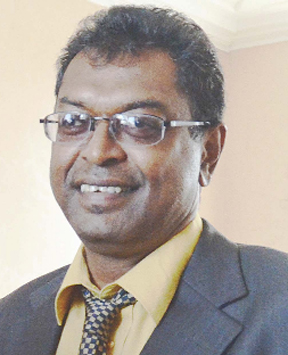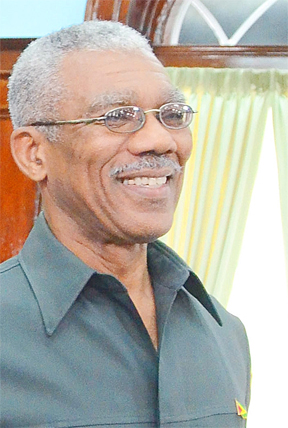Despite the fact that a former Attorney General has given an opinion that Cabinet does not have to channel lottery proceeds through the National Assembly for approval, opposition parties are adamant that the money must go to the Consolidated Fund and not spent at Cabinet’s whim without scrutiny.
Government’s representative of the Lotteries Commis-sion Board, Deputy Accoun-tant General Vladim Persaud recently told Stabroek News that all approvals for the fund’s expenditure come from Cabinet, while also noting that it is criteria-based. “It is a development fund for culture and sports [activities],” he has said.

But AFC leader Khemraj Ramjattan condemned Cabi-net’s controlling the spending of government’s 24 percent of the lotteries proceeds and stated that this money must come under the oversight of the National Assembly. Persaud said that Cabinet is the entity that makes decisions on the use of the funds, notwithstanding that the fund is supposed to be governed by a Board.
Speaking to the Stabroek News last week, Ramjattan said that the government’s share of the proceeds less of expenses and cost defrayment must go into the Consolidated Fund. “It is public monies and notwithstanding it comes under its own special Act, it must go into the Consolidated Fund,” said Ramjattan.
“It is my view that the Executive branch must not be the exclusive [authority] over how these monies are spent. It must be up to the duly-elected representatives in the House to control the purse strings,” he said.
Ramjattan said that government’s action with regard to the Lotto funds coupled with what he called abuses of the National Industrial and Commercial Investments Limited (NICIL), all constitute “executive lawlessness and criminality.”
He said that the financial culture now occurring in the country is going to harm the national ethos and persons will now feel emboldened to flout the law, if they feel that those at the top could get away with it.
That the Cabinet is making decisions on the use of the fund and not the board itself is further evidence that it is the “politicos in the Executive controlling the thing.” He called the board a sham and a charade, since they have no control over the spending of the money.
Further, Ramjattan slammed the opinion of former Attorney General Charles Ramson in the 2009 Report of the Auditor General which justifies government’s treatment of the Lotto proceeds. “Ramson’s legal opinion is wholly erroneous [and he indicates] a process of analysis that is wholly wrong and not in keeping with the Constitution,” he said. Ramson had stated that there is no legal obligation to transfer monies into the Consolidated Fund and that the Lotto Fund is subject to an audit by the Auditor General under the provisions of the Fiscal Management and Accountability Act.
Leader of the Opposition and APNU Member of Parliament David Granger said that a Cabinet decision does not render the law inapplicable and insists that there must be parliamentary approval for the spending of public funds. “Our position is that it must go to the Consolidated Fund,” he said, pointing out that unless this happens, there cannot be parliamentary scrutiny of the funds.

The Auditor General’s Report of 2011 stated that during the period 1996 to 2011, amounts totalling $4.022 billion were received from the Guyana Lotteries Company and deposited into the Lotto Fund – bank account number 3119. It said that at the end of 2011, the balance in the account was $853.744 million and that $134.840 million was used in 2011.
The monies are spent in the areas of culture, youth and sport development, financed medical treatment overseas and support for disadvantaged groups, among others.
It is understood that for 2012, the majority of the expenditure went to projects such as funding students from out of town to come to the city to take part in cultural events.
Justice Diane Insanally in December threw out a case brought against the government in relation to the Lotto Fund on procedural grounds. APNU MP Desmond Trotman in 2010 sought a declaration that government’s actions, which include disbursements without parliamentary approval, were unconstitutional and illegal.
Trotman, in his application, had asked the court whether government’s share of the money from the Guyana Lottery Company was required to be paid into the Consolidated Fund, in accordance with Article 216 of the Constitution and sections 21 and 38 of the Fiscal Management and Accountability Act 2003. He had also sought to determine whether government’s spending of that money without the authority of the National Assembly, is unconstitutional and illegal.
In the Auditor General’s report for 2011, then acting Auditor General Deodat Sharma said that in his previous reports, the Audit Office highlighted the failure of the Ministry of Finance to pay over the government’s share of the 24 percent of the proceeds of the lotteries to the Consolidated Fund.
“Instead, such proceeds were paid into a special bank account No 3119. The balance in [this bank account] was not refunded to the Consolidated Fund as required by Section 43 of the [Fiscal Management and Accountability Act (FMAA), but was retained by the ministry,” Sharma said.








